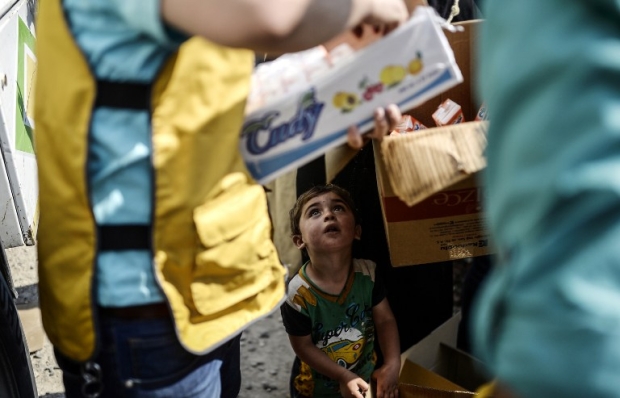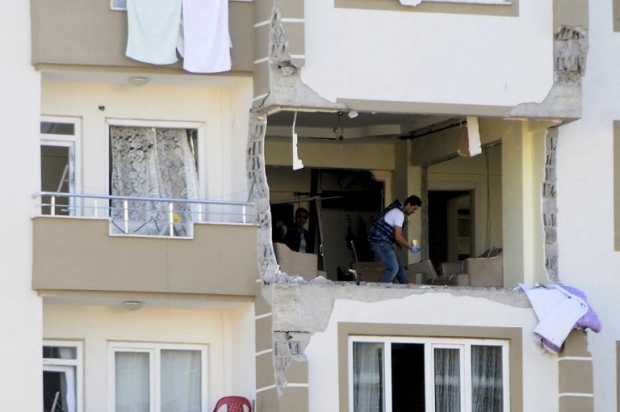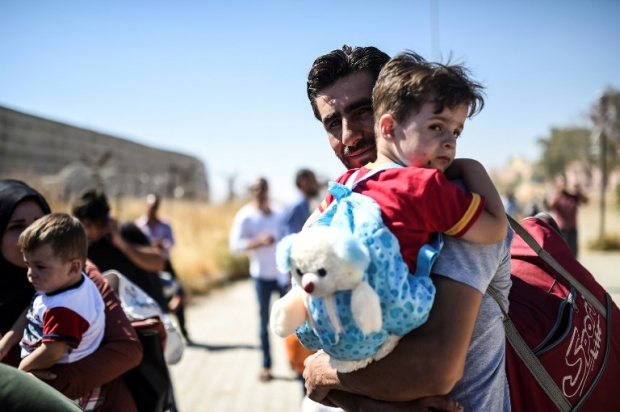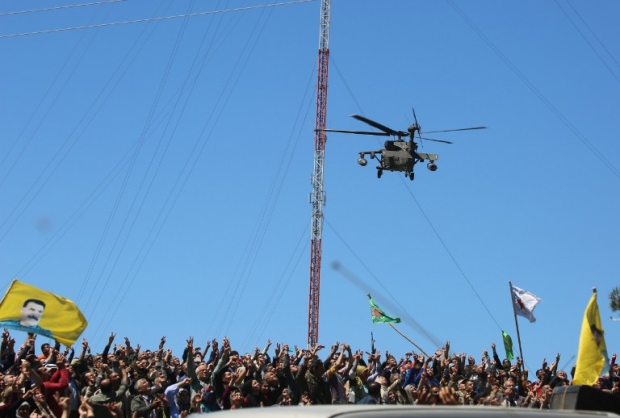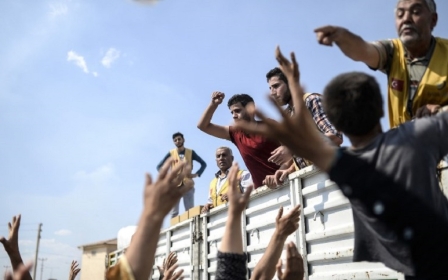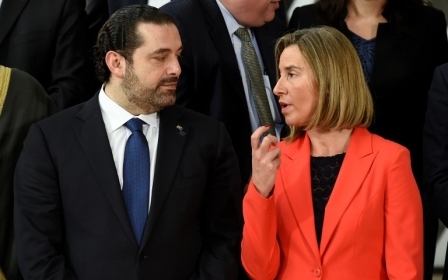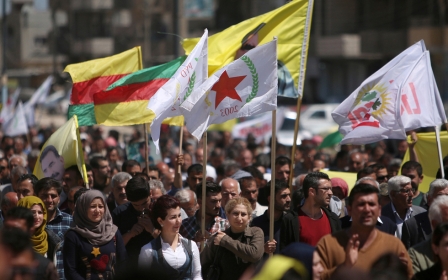Syrian aid grinds to halt as Turkey cracks down on foreign agencies
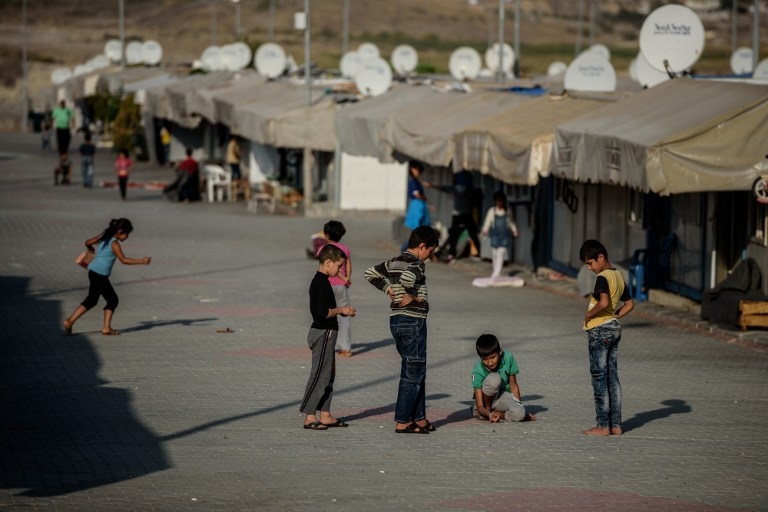
International aid organisations are operating in an escalating climate of fear in south Turkey, as Ankara suspends operating licences, arrests and deports workers, and complicates already labyrinthine government regulations.
International non-governmental organisations (INGOs) in south Turkey have "come to a standstill", according to one aid worker interviewed by MEE.
The crackdown means INGOS are increasingly unable to operate vital aid programmes to hundreds of thousands of refugees, both in Turkey and across the border in Syria. At several organisations, staff intended for practical field roles are being forced to work from home, for fear of arrest or deportation.
The whole organisation is down – we can't do anything; we aren't doing anything
- employee of NGO in south Turkey
"A lot of organisations, including ours, are at a standstill," said a Turkish employee of an INGO in south Turkey, who requested anonymity for security reasons. "We are not able to have Syrian or expat staff in our field offices. People are working from home and we are not doing any outreach activities. The whole organisation is down – we can't do anything; we aren't doing anything."
The clampdown on INGOs comes as Turkey adopts a more strongly isolationist stance and increases pressure on civil society and freedom of speech.
Last month 15 members of the International Medical Corps (IMC) team in Gaziantep, all of whom held valid Turkish work permits, were arrested. Four were deported back to their home countries, but the 11 remaining staff members – all Syrian – remain in detention.
MEE understands that the Syrians among the imprisoned aid workers face deportation back to the neighbouring warzone.
"The Turkish government arrested the Syrians they found at work," one former IMC staff member in south Turkey told MEE. "My friends are in jail and I think they are afraid of being deported back to Syria."
No official reason was given for the arrests. But MEE understands that the workers held work permits issued in Hatay province, instead of the city of Gaziantep, where they are based, thus falling foul of Turkish legislation.
The AFAD, the Turkish government's emergency response body which coordinates the Syrian refugee response, confirmed to MEE that deportations of aid workers had taken place for this reason.
Since the violence in Syria began more than six years ago, Turkey has hosted large INGOs, which receive and use the billions of dollars provided by international donors and governments for the relief effort.
Gaziantep, a city 60km from the Turkey-Syria border, has acted as a hub. As INGOs moved in to respond to the Syria crisis, Turkish authorities held a relatively lax view towards work permits, movement permits, and paperwork.
But they have suffered increased scrutiny since last year's failed coup attempt against President Recep Tayyip Erdogan.
The arrests and deportation of IMC staff is the latest example of pressure on INGOs.
In March, US-headquartered Mercy Corps was forced to close its operations in Turkey after Ankara revoked its registration.
In the same month, 10 staff members from DanChurchAid, a Danish humanitarian organisation providing assistance in Syria, were arrested, and five later deported to various European countries. The others are believed to remain in detention.
Rising nationalism?
Analysts said that the growing hostility towards INGOs providing relief to Syrian refugees is one sign of Turkey's rising nationalism. It is also believed to be borne of suspicions that aid is helping Kurdish militants, whom Turkey vehemently opposes.
Rather than an outright revoking of organisations' licence to operate, as happened with Mercy Corps, sources described how the crackdown is now playing out through regulations that increasingly strangle their reach.
Since December, all NGOs in Hatay, bordering Syria's Idlib province, have had to register any meeting of seven or more people with local authorities 48 hours in advance.
'The Turkish government wants to take jobs for the Turks ... They want to take these jobs for their Turkish sons'
- former IMC worker
According to a document issued by Hatay governorate, seen by MEE, NGOs must provide the meeting's "location, date, and time", and "identity and contact information of the participants."
"In indoor and outdoor meetings, participants shall be searched by private security personnel", continued the order, which the governorate appeared to justify on security grounds, citing, "the terrorist actions and bombings that happened in Turkey recently."
Middle East Eye contacted multiple INGOs with offices in south-east Turkey. Two-thirds of the 2.9 million Syrians in Turkey reside in the region.
Most were unwilling to comment, or confirm or deny whether they had received police visits, or had to lay off Syrian workers.
"We continue to have a strong relationship with the Turkish government," said a spokesperson for the International Organisation for Migration, which has an office in Gaziantep.
Aid needs are growing, not shrinking
The crackdown comes as the UN suggests humanitarian aid resources in Turkey are stretched.
Turkish government institutions and services are "increasingly overwhelmed and resources stretched thin" as the number of refugees has risen, according to the UN south-east Turkey inter-sector working group.
It is currently unclear if Turkish organisations will be able to absorb the work carried out by expelled international NGOs.
The AFAD spokesperson stressed that aid would not be affected. "Humanitarian aid will continue, we do not anticipate a major problem," he told MEE.
Before it was evicted from Turkey, Mercy Corps alone served up to half a million people in Syria each month, and a population of 100,000 in Turkey.
In any case, Syrian aid workers unable to do their jobs at present believe they would not be hired by Turkish organisations.
"In my opinion, the Turkish government wants to take jobs for the Turks," said the former IMC worker. "They want to take these jobs for their Turkish sons."
This is despite the practical advantages of a common language and country knowledge that Syrians have over Turks when dealing with the refugee population.
"The Turkish doctors were asked to improve their Arabic, but this didn't happen… They would hire a translator for every specialist. It was an impossible task for the organisation", the worker continued. "The office staff don't need to speak Arabic, but do need to speak English, which is a big problem for Turks."
Impossible to comply with Turkish requirements
The Interior Ministry, to whom AFAD directed questions on the issue of aid workers being deported, did not respond to MEE's requests for comment. But officials have previously said that if INGOs comply with all Turkish authorities' requirements, they can operate as needed.
"Ankara is trying to send a political signal to the international community: the AKP government is tightly monitoring this industry and international donors need to adhere to AKP rules if they have ambitions of operating out of Turkey," Hetav Rojan, an analyst on Turkish and Kurdish affairs based in Denmark, told MEE, referring to the ruling AKP party.
But INGO workers described the difficulty of doing so, in part due to the enormous number of arrests and dismissals of government employees in the wake of last summer's attempted coup against President Erdogan.
About 120,000 people have been suspended from jobs in the public and private sectors, and more than 40,000 arrested.
"The rules keep changing, making it really hard to comply," the current aid worker in southern Turkey said. "Government officers keep changing [as a result of the post-coup purge]; you maybe had a relationship with one before and then a new one comes in who is super unhelpful."
Greater destitution for Syrians on both sides of the border
If more INGOs are forced to shut up shop in southern Turkey, it would be Syrians in Turkey and across the border who would suffer.
Syria's Idlib province houses tens of thousands of internally displaced people.
Civilians there report daily air strikes by Syrian regime forces, causing the humanitarian situation to worsen by the day what is increasingly a "kettling zone" for opposition forces and civilians.
UN agencies and their partners are allowed to cross from Turkey into Syria to deliver humanitarian assistance, including medical and surgical supplies, until at least January 2018, in line with a UN Security Council resolution. In March 2017 alone, 400 trucks supplied hundreds of thousands of people with food and other essentials, according to UN monitoring documents.
But aid delivery could get much harder if restrictions on INGOs in Turkey increase.
One of the main reasons would be cash flow disruption, according to a report released last week by the Century Foundation.
'Ankara is trying to send a political signal to the international community'
- Hetav Rojan, analyst on Turkish affairs
If more INGOs were purged from southern Turkey, there could be, "a major disruption in relief provision to north Syria, in part because of how it would affect the flow of donor money," wrote Sam Heller, author of the report.
"These INGOS - which can satisfy Western donors' reporting and monitoring standards in a way most local NGOs cannot - are a critical conduit for funds from donors including USAID, Britain's Department for International Development (DfID), and the European Union."
Syrians in Gaziantep are increasingly worried about the effect on friends and family across the border.
"International organisations like IMC do a lot of work in Syria, especially around health and hygiene," said one Syrian in Gaziantep who had previously worked with INGOs before he moved to Turkey. "We are worried that this situation will have a really negative effect on these services, and so on Syrians."
Why is Turkey kicking out aid workers?
Observers and aid workers attribute the increasing pressure on INGOs to nationalistic and anti-Western sentiment in Turkey.
In the pro-government Turkish press, accusations abound about international organisations harbouring spies and aiding Kurdish militants.
One article published by the Sabah newspaper accused foreign organisations "operating under the name of 'humanitarian aid'" as having "given the Syrian PKK one million dollars".
Relief organisations dismissed the claims.
"There is a 'get foreigners out' attitude," said one of the aid workers interviewed by MEE. "People used to be interested in foreigners from the EU and the US, and now they are [seen as] the worst."
A reluctance to allow any sort of aid that might end up in areas controlled by Kurdish forces could also be at play.
Rojan said that the expulsion of INGOs was akin to a punishment for the US's support for the Syrian Democratic Forces, a Kurdish-majority fighting alliance in Syria.
Late on Tuesday, the US announced it would be delivering military aid to the Kurdish YPG militia, a key component of the SDF. Ankara sees the YPG as an extension of the banned PKK militant group.
Rojan said AKP officials' reaction to the Mercy Corps expulsion – accusing them of colluding with the PKK – was, "a clear continuation of domestic AKP rhetoric aimed at Washington for the past years, lambasting the administration for working with the SDF in shaping operations around Raqqa and northern Syria in general."
As for employees of INGOs in Turkey, and the people who rely on the aid they provide, the future is uncertain. "I really wonder what will happen to the Syrian staff," said the Turkish INGO employee. "We've been in crisis mode for five weeks, but it feels like so much longer."
New MEE newsletter: Jerusalem Dispatch
Sign up to get the latest insights and analysis on Israel-Palestine, alongside Turkey Unpacked and other MEE newsletters
Middle East Eye delivers independent and unrivalled coverage and analysis of the Middle East, North Africa and beyond. To learn more about republishing this content and the associated fees, please fill out this form. More about MEE can be found here.


